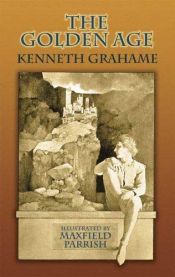The Golden Age
Blurb
The Golden Age is a collection of reminiscences of childhood, written by Kenneth Grahame and originally published in book form in 1895, in London by The Bodley Head, and in Chicago by Stone & Kimball. Widely praised upon its first appearance — Algernon Charles Swinburne, writing in the Daily Chronicle, called it "one of the few books which are well-nigh too praiseworthy for praise" — the book has come to be regarded as a classic in its genre.Typical of his culture and his era, Grahame casts his reminiscences in imagery and metaphor rooted in the culture of Ancient Greece; to the children whose impressions are recorded in the book, the adults in their lives are "Olympians," while the chapter titled "The Argonauts" refers to Perseus, Apollo, Psyche, and similar figures of Greek mythology. Grahame's reminiscences, in The Golden Age and in the later Dream Days, were notable for their conception "of a world where children are locked in perpetual warfare with the adult 'Olympians' who have wholly forgotten how it feels to be young" — a theme later explored by J. M. Barrie and other authors.

 English
English Español
Español Deutsch
Deutsch










Member Reviews Write your own review
Be the first person to review
Log in to comment